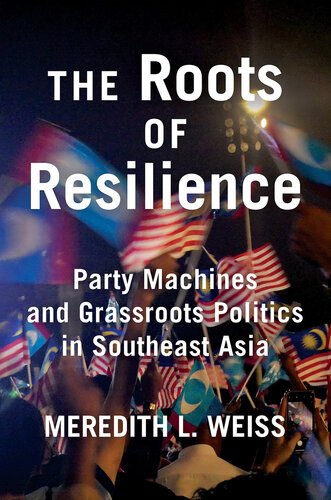

Most ebook files are in PDF format, so you can easily read them using various software such as Foxit Reader or directly on the Google Chrome browser.
Some ebook files are released by publishers in other formats such as .awz, .mobi, .epub, .fb2, etc. You may need to install specific software to read these formats on mobile/PC, such as Calibre.
Please read the tutorial at this link: https://ebookbell.com/faq
We offer FREE conversion to the popular formats you request; however, this may take some time. Therefore, right after payment, please email us, and we will try to provide the service as quickly as possible.
For some exceptional file formats or broken links (if any), please refrain from opening any disputes. Instead, email us first, and we will try to assist within a maximum of 6 hours.
EbookBell Team

0.0
0 reviewsThe Roots of Resilience examines governance from the ground up in the world's two most enduring electoral authoritarian or "hybrid" regimes―Singapore and Malaysia―where politically liberal and authoritarian features are blended to evade substantive democracy. Although skewed elections, curbed civil liberties, and a dose of coercion help sustain these regimes, selectively structured state policies and patronage, partisan machines that effectively stand in for local governments, and diligently sustained clientelist relations between politicians and constituents are equally important.
While key attributes of these regimes differ, affecting the scope, character, and balance among national parties and policies, local machines, and personalized linkages―and notwithstanding a momentous change of government in Malaysia in 2018―the similarity in the overall patterns in these countries confirms the salience of these dimensions. As Meredith L. Weiss shows, taken together, these attributes accustom citizens to the system in place, making meaningful change in how electoral mobilization and policymaking happen all the harder to change. This authoritarian acculturation is key to the durability of both regimes, but, given weaker party competition and party–civil society links, is stronger in Singapore than Malaysia. High levels of authoritarian acculturation, amplifying the political payoffs of what parties and politicians actually provide their constituents, explain why electoral turnover alone is insufficient for real regime change in either state.